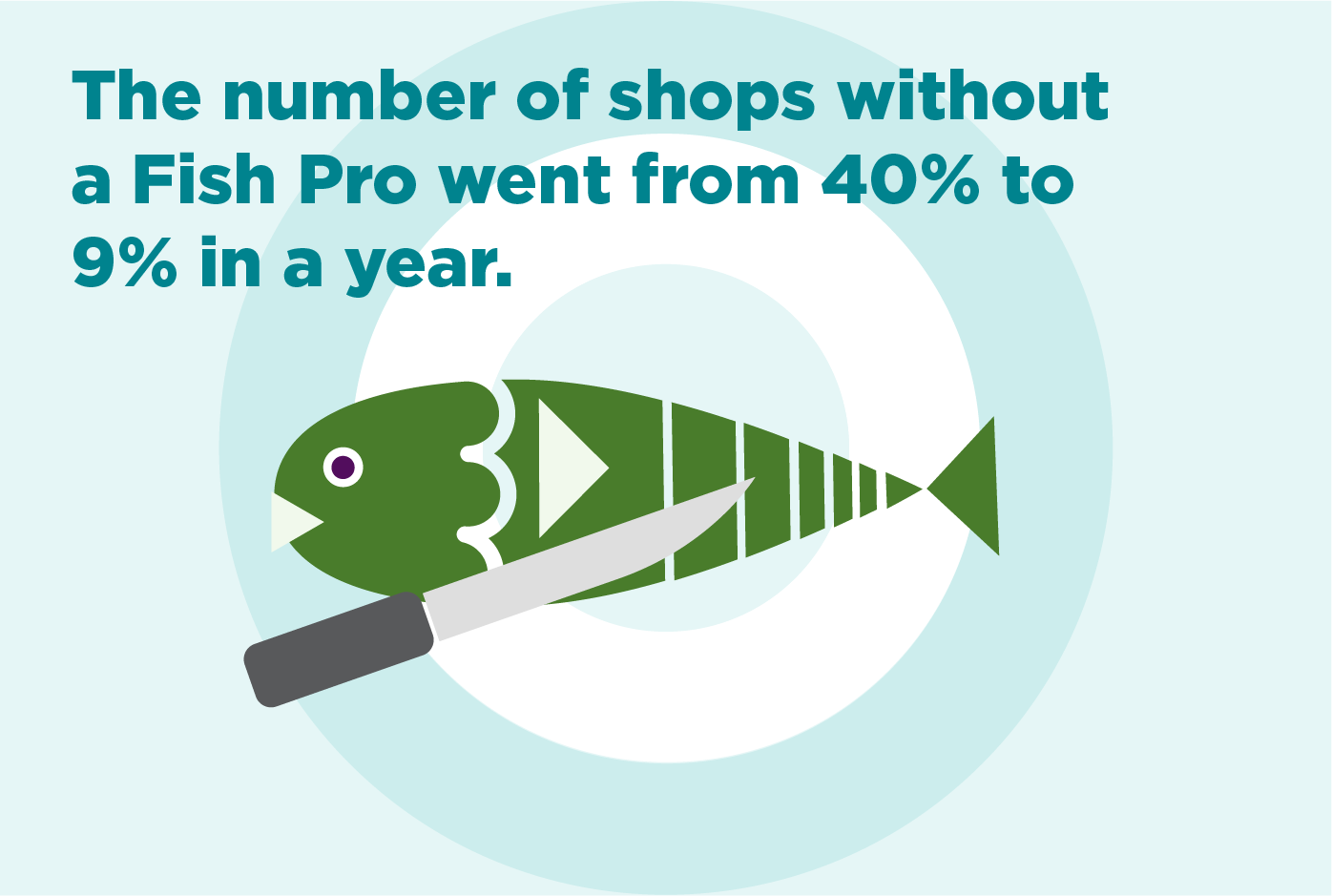The situation
It takes a particular kind of person to cut 40kg of fish into 3,000 precisely sized pieces every day – all while sticking to strict health and safety standards. So when a sushi-based business nets people like that, it wants to keep them.
But a couple of years ago, itsu needed to address the high turnover among its fish cutters to prevent the business from suffering. itsu has been making healthy, Asian-inspired food fresh in its shops every day since 1997. Today, it has 1,500 employees, 73 shops across the UK and New York and a turnover of more than £100m.
The challenge
Voted one of the UK's coolest brands, itsu receives 600 applications a week from people keen to join the team. The challenge is getting them to stay: 80% of its people are Europeans, many of whom come to improve their English for a year or so before heading home.
A couple of years ago, turnover among fish cutters had reached an all-time high, and vacancies were hard to fill. As a result, Fish Pros (experienced fish cutters, responsible for the work of more junior Fish Stars) were missing from the 'family tree' of shops across the business.
"The work of our fish cutters is repetitive, isolated and not very glamorous. But because we put people at the heart of everything, it was easy to get the buy-in to invest in, reward and recognise them."
The solution
The initial idea for up-skilling and engaging the fish cutters came from training manager Alba Trujillo. In her previous role training fish cutters for new shops, she’d noticed that the existing masterclass didn’t offer any hands-on practice. So she took on the task of revamping it – despite being new and relatively junior in the people team.
A steep learning curve saw Alba work with colleagues from across itsu and beyond to develop a masterclass that met City and Guilds standards for accreditation. Successful graduates got a certificate and on-going guidance through materials they could access on the shop computer. Meanwhile, the fish cutters received a pay rise to recognise the skill involved.
Alba went on to develop the next stage of the initiative – the Fish Pro of the Year competition. This sees fish cutters show off their slicing skills for a place in the X-Factor-style live final. With a first prize of a weekend for two in New York, the competition creates a huge buzz across the business – amplified by area managers and social media.

The results
The following year, the company saved considerable amounts in labour and food waste, which more than made up for the costs of the initiative. The number of shops without a Fish Pro went from 40% to 9% in a year. Customer complaints also dropped.
But even more important to itsu is the impact the initiative has had on the fish cutters themselves. 'The Fish Pros feel valued and engaged, and our family trees are missing fewer of them than ever,' says Harry Housen, People and Development Director. 'We attract and we retain – how good is that?'
The team's not resting on its laurels, though. Alba’s working on a 'Fish Ninjas' project to help accredited fish cutters to maintain their masterclass skills on the job. And the Fish Pro of the Year competition generates so much enthusiasm that there’s now a separate award for the most supportive team.
Top tips
For Harry, the secret of success is to listen and act. 'As long as you genuinely listen to your people and respond to their concerns, you will succeed. If you promise, make sure you deliver. If you can’t deliver, make sure you tell them why. People always remember; empty promises will naturally break their trust and damage their engagement.'
For Itsu, listening and responding to its fish cutters has certainly paid off. 'I never come to work and think, I'm going to cut 40kg of salmon then finish my shift,' says Tomas. 'I always think, what can I do better? How can I make my sushi more perfect? How can I reduce my waste? I set goals.'
You don't get any more engaged than that.
"The masterclasses show that the company cares about its people. This makes our job enjoyable – we know we can develop ourselves."
This is what impact looks like
Demonstrated professional values:
- Principles-led
Outcomes-driven
Demonstrated knowledge:
- Business acumen
- Culture and behaviour
- Technology and people
- People practice
Demonstrated behaviours:
- Ethical practice
- Commercial drive
- Insights focused
- Professional courage and influence
- Passion for learning
- Valuing people
- Working inclusively
Demonstrated specialisms:
- L&D
- Resourcing
- Talent management
- Employee experience
- Reward
CIPD Trust
Tackling barriers to work today whilst creating inclusive workplaces of tomorrow.
Bullying
and harassment
Discover our practice guidance and recommendations to tackle bullying and harassment in the workplace.

Explore the CIPD’s point of view on employee voice, including recommendations for employers

Evaluating the pros and cons of working in shared office spaces, and how they impact on productivity

An examination of how strong channels for employee voice has the potential to drive the effectiveness of high-performance management practices

Researchers explore the differences between ‘organisational’ and employee-focused voice, how they impact employees and what managers can do to foster voice
Read the CIPD’s November 2023 submission to His Majesty’s Treasury
